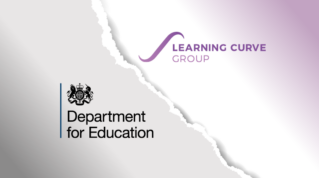Disadvantaged adults are almost twice as likely to have steered clear of learning than their more advantaged peers, the Learning and Work Institute has found at the start of Lifelong Learning Week.
This year’s adult participation in learning survey found 37 per cent of adults aged 17 and over in socio-economic groups D and E – working class and lower-income workers – have not participated in learning since leaving full-time education.
This compares to 18 per cent of adults from groups A and B, which covers the upper-middle and middle classes.
The survey found the proportion of adults who have taken part in learning in the past three years has increased to 44 per cent, around 2,200 people, on the historic low in 2019 of 33 per cent.
Lower socioeconomic groups have seen a 14 percentage point increase in their number participating in education since 2019.
However, participation by the highest groups has risen by the same, meaning the gap between the two groups has not changed.
LWI calls for ‘collective effort’ to make this the lifelong learning century
Learning and Work Institute chief executive Stephen Evans said it was “good to see a rise in participation in lifelong learning after years of falls”.
But the “stark inequalities” in access mean “those who could benefit most from learning are least likely to participate”.
Evans called for a “collective effort to build a culture of learning and make this the lifelong learning century”.
The results of this survey of over 5,000 adults aged 17 and over have been released to mark the start of Lifelong Learning Week, the institute’s annual celebration of adult education providers and learners, which this year is taking place between Monday 8 and Friday 12 November.

In addition to the above, the survey also found 29 per cent of those who have not recently taken part in learning say “nothing” is preventing them from doing so.
Only four in ten adults are aware free basic skills courses are available, with 38 per cent of those who left full-time education aged 16 or below and 42 per cent of those who left aged 17-18 being aware these courses are available
This has triggered the institute to call on the sector to “actively promote the benefits of learning to encourage participation”.
Baroness Barran, the Department for Education minister in the House of Lords, told peers last week the department is planning to “launch a new campaign” to “raise awareness and boost understanding of skills offers among adults” in January 2022.
Chancellor of the exchequer Rishi Sunak announced in last month’s autumn budget the government will have invested £68 million by 2024-25 to “level up the adult skills system”.
However, Evans reported shortly afterwards that this would still leave a £750 million black hole in adult skills funding, with the chancellor’s announced funding restoring only 60 per cent of cuts made since 2010.
Adults starting to move back to face-to-face learning
The effects of the pandemic on virtual learning can also be seen from the survey, with 52 per cent of respondents saying their main learning has taken place entirely online.
But those learning currently, the survey continues, are more likely to be learning face-to-face, compared to those who took part in learning in the last three years, 31 per cent to 26 per cent.
“This finding may reflect a gradual return to face-to-face learning as coronavirus restrictions ease,” the survey reads.
“However, the continued prevalence of online learning indicates that this will still be an important mode of learning in future.”
One-fifth of respondents who were asked what would encourage them to take up free English and maths courses gave “the option to take the course entirely online” as their answer.
The institute says this “provides lessons” for the government for the design of the £560 million Multiply adult numeracy programme which Rishi Sunak announced last month and is intended to benefit up to half a million people.
A spokesperson for Department for Education, which part-funded this survey, said: “It’s great to see that there has been a rise in adult learners since 2019, but we recognise there is more do to make sure more people from disadvantaged backgrounds are aware of and can access the training they need to progress.
“We want everyone to have the opportunity to learn and develop the skills they need to succeed at any age. That’s why we are continuing to invest in education and skills training for adults through the adult education budget and the National Skills Fund. Our Free Courses for Jobs offers over 400 free courses to help adults progress in a wide range of sectors, and our Skills Bootcamps are supporting more people to gain sector specific skills with a clear line of sight to a job. The Chancellor has also announced a new £560 million scheme, Multiply, to improve the maths skills of hundreds of thousands of adults across the UK.”
The adult participation in learning survey has been running almost annually for 25 years since 1996, save for 1997, 1998 and 2016.
This year’s survey the institute’s excludes findings from 2020 due to the “unique context” of the Coronavirus lockdown restrictions, meaning they are not comparable to 2021’s findings.

















A survey like this can show which group is more likely to participate, but that’s pretty much it.
Imagine a scenario where everyone gets the same amount of provision and the participation rate is equal and fair across all disadvantaged/advantaged categories. That appears to be what LWI are calling for, but less clear on what effect that would have.
Determining which group an individual sits in is also critical. When an individual leaves full time education they could have been disadvantaged or not. When the survey was carried out the same individual could have been disadvantaged or not. This has a fundamental bearing on how you calculate and interpret the results.
The real issue here is whether the proportion of disadvantaged in the population is changing and whether it’s as a result of participation, without that this survey has no context.
Also… we know the funding has still been falling, so you would think that learning episodes must have been getting smaller in order for participation to increase since 2019. Surely the duration or ‘weight’ will have an impact on the effect it has on an learners individual circumstances.